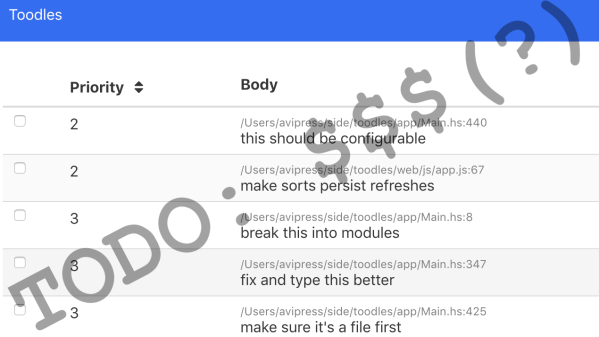[Avi Press] recently made a Medium post sharing his thoughts on a failed effort to allow for paid users of an open source project. [Avi] is the author of Toodles, a tool to help organize and manage TODO items in software development. Toodles enjoyed unexpected popularity, and some of its users were large organizations. It seemed that Toodles was of value to people who could afford to pay, and they might even be willing to do so if [Avi] provided a way for them to do it. It turned out that the monetizing process was far from simple, and he ultimately wasn’t successful.
Before he even started, [Avi] thought carefully about things and found that even basic and preliminary questions were difficult to answer, such as:
- How many people were actually using the software on a regular basis? Were they gaining quantifiable value from it?
- What exactly would someone be buying? How would they pay, and how would it get delivered to them?
- How could companies be charged for the tool while still offering it freely to individuals?
- Is it even ethical to accept money for a project to which others have contributed? How could money be shared with contributors? How to fairly decide who gets how much?
In short, [Avi] discovered that much of the data he felt he needed in order to make these decisions didn’t exist, wasn’t easily accessible, or couldn’t be reliably measured. His experiment in adding a license and payment system (which always seemed to need more work than it should) yielded no fruit, as there were zero paid users anyway.
Regardless of whether “difficulty in shoehorning a paid license system into an open source project” should be filed under “Feature, not Bug” [Avi] does thoughtfully present the issues he encountered. Open source and getting paid are not necessarily mutually exclusive. Octoprint is one example of an open source project that eventually navigated these waters, but that doesn’t mean it was easy, nor does it mean there are established tools and processes.











